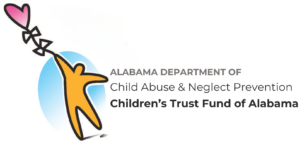More than 23 million Americans have struggled with drug abuse at some point in their lives and more than 14.5 million have an alcohol use disorder.[1,2] Each and every one of these individuals has family, friends, or other loved ones who have been deeply affected by their substance abuse.
Sadly, very few people who struggle with addiction get the help that they need. If you  are one of the few lucky individuals who are blessed with the opportunity to watch their addicted loved one get sober, you know just how relieving that can be.
are one of the few lucky individuals who are blessed with the opportunity to watch their addicted loved one get sober, you know just how relieving that can be.
Now that your loved one is sober, you may be wondering exactly what your role should be in their recovery. Your encouragement, support, and participation in your loved one’s recovery journey truly can help your loved one stay sober. It can also allow you to live with peace of mind. Fortunately, there are many ways you and your family can support your recovering loved one.
The Importance of Family Support in Addiction Recovery
Addiction is often referred to as a “family disease.” This is because the effects of addiction can be so far-reaching that they begin to impact the well-being of the addict’s family members. Mothers may spend night after night lying awake worrying about their addicted child. Spouses and partners may exert all of their energy trying to protect their addicted loved ones and shield them from consequences. Children may spend their developmental years feeling neglected, unloved, or unimportant. The various ways addiction can affect the entire family are endless.
Because the whole family is affected by addiction, recovery can benefit from the involvement of the entire family. In fact, researchers have found that family involvement in treatment and recovery can improve treatment entry, encourage treatment completion, and enhance treatment outcomes for individuals struggling with addiction.[3] Not only that, but supporting your loved one in recovery can also help you heal, yourself.
How Families Can Get Involved in Their Loved One’s Recovery
There are many different ways family members can support their loved ones on their road to recovery. A few simple, effective ideas include:
Go To Family Therapy Together
 It’s likely that you and other members of your family have been affected by your loved one’s addiction in one way or another. Family therapy gives each person an opportunity to express themselves in a safe, therapeutic setting. If your family is facing a specific issue, family therapy can help you solve it in a constructive manner. Therapy can also give you and your family tips for conflict resolution, healthy communication, and boundaries–all of which can help you support your recovering loved one.
It’s likely that you and other members of your family have been affected by your loved one’s addiction in one way or another. Family therapy gives each person an opportunity to express themselves in a safe, therapeutic setting. If your family is facing a specific issue, family therapy can help you solve it in a constructive manner. Therapy can also give you and your family tips for conflict resolution, healthy communication, and boundaries–all of which can help you support your recovering loved one.
More importantly, getting involved in treatment yourself is a major gesture indicating just how much you care and support your loved one’s recovery.
Attend Some Al-Anon/Alateen Meetings
Understanding addiction and recovery can be complicated if you’ve never experienced it yourself. On the other hand, it can also be easy to get so caught up in your loved one’s addiction and recovery that you forget about your own personal needs. A great way to show support for your loved one in recovery while also getting support for yourself is to attend some Al-Anon or Alateen meetings.
Al-Anon meetings are for families and loved ones of alcoholics (or addicts) and Alateen meetings are specifically for teens and adolescents who love someone struggling with addiction. These meetings are spin-offs of Alcoholics Anonymous (AA) and use the 12-Steps to educate loved ones about addiction and recovery, encourage the development of social support systems, and help those who have been affected by someone else’s addiction.
By attending these types of meetings, you will demonstrate to your recovering loved one that you have a genuine interest in supporting his or her recovery. You will also get to meet other like-minded individuals with similar backgrounds who can provide you with suggestions of how to support your loved one in specific situations.
Reduce Tension and Conflict in The Family Unit
 Home and family life can be major sources of stress for people in early recovery. Although it is not your responsibility to make sure your loved one never experiences stress, you and your family can be helpful by taking steps to reduce tension and conflict in the family unit.
Home and family life can be major sources of stress for people in early recovery. Although it is not your responsibility to make sure your loved one never experiences stress, you and your family can be helpful by taking steps to reduce tension and conflict in the family unit.
A few ways you can do this include:
- Setting clear expectations for everyone
- Practicing healthy, clear communication with one another
- Trying to be flexible and resourceful in times of conflict
- Practicing forgiveness
- Spending time together with everyone in the household on a regular basis doing something fun and interactive such as game night
- Respecting your loved one’s boundaries
Take Your Recovering Loved One to 12-Step Meetings
While it’s important to encourage support group participation in your loved one, you may be able to get involved, yourself. Many 12-Step meetings are considered “open meetings” which means they are available not only to fellowship members, but also to guests, family, and friends. Attending one of these meetings with your loved one is a great way to show your dedication and support.
If your addicted loved one isn’t comfortable going to meetings with you, you can always offer to give them a ride to the meeting. This will demonstrate your dedication to making sure your loved one attends their meetings and stays focused on their sobriety.
Support Your Loved One’s Recovery-Related Endeavors
Recovery looks different for everyone, but for most people, it involves a complete change in behavior and environment. Some people will benefit from 12-Step groups like AA and NA while others will benefit from alternative support groups like SMART Recovery or Refuge Recovery. At the same time, support groups may not be the only thing your loved one needs to stay sober.
Many people in recovery participate in other recovery-related activities such as rehab alumni programs, sober living communities, and local meet-ups for sober people. The “sober lifestyle” has gotten so big there are even sober bars and sober gyms in some cities dedicated to serving people in recovery.
Regardless of what your loved one’s journey looks like, it’s important to show your support. Don’t judge them for their choices and don’t shame them for their past. Don’t make the assumption that one style of recovery fits all, either. As long as your loved one is staying sober, enjoying life, and not causing harm, the best thing you can do is support them on all of their recovery-related endeavors.
References:
- https://www.nih.gov/news-events/news-releases/10-percent-us-adults-have-drug-use-disorder-some-point-their-lives
- https://www.niaaa.nih.gov/publications/brochures-and-fact-sheets/alcohol-facts-and-statistics
- https://www.ncbi.nlm.nih.gov/pmc/articles/PMC5781095/









